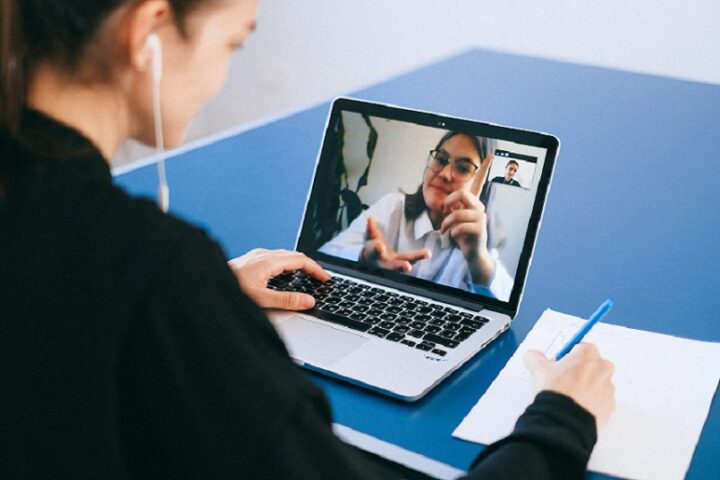Education Opportunities in Turbulent Times

Education opportunities are the quintessential purpose of human creation. Learning about a variety of things and acquiring essential skills both are a form of education. It is the primary necessity of an individual which shapes the personality of that individual. It also paves his path of life thus getting education is the basic purpose of a human.
One starts learning when he starts sensing things and it continues till death. But formal education is also a dire need. For that purpose, one attends different institutions starting from an early age and equips himself with as much knowledge as one can.
Modern times are particularly hard on individuals making it difficult to acquire education. These are specifically turbulent times. One has to avail any opportunity that becomes available. Few education opportunities available in turbulent times are enlisted below.
Home schooling:
Homeschooling is the cheapest and cheapest way of getting education. Additionally it is a more comfortable way of getting education. In these hard and turbulent times, it is best to learn and study with available things.
One can learn via certified syllabus and things present in the milieu. In this way one can acquire more natural and practical education. One can equip oneself with knowledge about nature and perform way more practical education.
We are currently teaching in an unusual environment, one marked by an ongoing pandemic, economic hardship, anti-Black violence, social unrest, a tumultuous election, complex family duties, and increased student stress and anxiety, among other key issues. This semester, there won’t be any of the typical get-togethers on campus. Our classrooms will also be different: many of us will be teaching in virtual or online environments, and some of our courses will have various modalities, such as huge online classes with virtual or in-person parts or labs. Clearly, where, when, and how we educate will shift from our usual routines, necessitating a new set of pedagogies and tools.
This toolkit also includes strategies for instructors who are familiar with teaching charged content and facilitating difficult discussions but are concerned about doing so remotely; instructors who are new to teaching such content or providing such facilitation; and instructors who simply want to be more proactive at this time. In uncertain times, there is no magic formula for teaching, but a few new tools can help.
Culinary education oportunities:

Culinary education is quite a handsome opportunity nowadays. Professional chefs and cooking experts are much in demand because of the abundance of restaurants. One can learn how to cook at home too with some digital help.
There are numerous institutes that teach culinary arts. It can also give a variety of scope for earning too. It is particularly easy to acquire in these turbulent times.
These days, an increasing number of people are pursuing their ambitions of flipping an omelet on a cooking program or running their own kitchen. Although online culinary education has grown in popularity recently, it is difficult to determine whether it is worthwhile for a vocation that provides low income at first.
To this long-debated topic, there is no single proper answer. The best answer is determined by a variety of criteria, including the expense of culinary education, professional goals, accessible options, and temperament.
Educators, restaurateurs, students, chefs, and new line cooks from all around the country offered their perspectives on the value and importance of remote education opportunities. They all agreed that online culinary education is beneficial, but they differed on the best way to go about it.
Digital education opportunities:
Nowadays the whole world is digitized with the help of modern technology. Plus it is the cheapest way to get an education too. One can gain access to a bundle of knowledge. Variety of education is just one click away. You can learn from YouTube and many other platforms and online programs.
There are multitude of websites that provide quality education and live lectures. It is particularly handy in these turbulent times because one can acquire education sitting anywhere at any time.
Zoom and Microsoft Teams, video conferencing technologies, have shown remarkable exponential growth: between March and June 2020, Teams expanded by 894 percent. According to a survey conducted by “Statista,” the digital platforms “Classroom” and “Zoom” were the most popular among students.
A survey published in 2020 in Sweden looked at which digital channels instructors used the most. It was discovered that teachers’ primary tools for online teaching were video conferencing platforms such as Zoom, Google Meet, and Teams. Teachers also frequently use YouTube-hosted pre-recorded seminars. Teams and Google Classroom were the most popular options for communication with students, group projects, and note sharing.
Biological science:
It is one of the biggest opportunities of all time. It offers varied and diverse education in the circle of life. One can get basic knowledge from institutes and even at home. Keen observation and deep connection to the life present around is a basic element of acquiring education related to biological science.
The most advanced education of biotechnology is chiefly useful in these turbulent times. It opens many doors to numerous fields and students can acquire it on cheap costs by becoming research associates too.
Anyone who works at a bench understands there’s no way to make up for missed time in the lab due to the pandemic. While this reality is difficult for all bench scientists, it is especially difficult for assistant professors who are just starting their labs, postdoctoral scholars who have only a year or two left on their contracts, and undergraduates who are missing out on laboratory experiences.
Social education opportunities:
It is a simple and easy education opportunity. One can manage to acquire this without burdening oneself much. There are a variety of NGOs and institutes that offer work along with education. One can do social work as well as equipping oneself with knowledge. It is a handy education opportunity in these turbulent times.
The mutual reinforcement of academic and practical learning, which includes socialization in the academic and professional community of social work, learning through exposure to complex and ill-structured social practice, and reflection on the interface between scientific knowledge, practice knowledge, and service users’ knowledge, is critical to social work education opportunities. From a didactic standpoint, the customized modes of teaching and learning create obstacles.
Undergraduate social work students’ drive to study, ask questions, and engage with course material increases when they have the experience of “being recognized” by instructors and classmates, according to research. As a result, it is clear that remote learning in social work education has its limitations for the reasons stated above. Universities for social work, on the other hand, have no choice in the event of a pandemic.
There are diverse and rewarding opportunities of education available nowadays. One can manage to acquire education in diverse fields in these turbulent times.